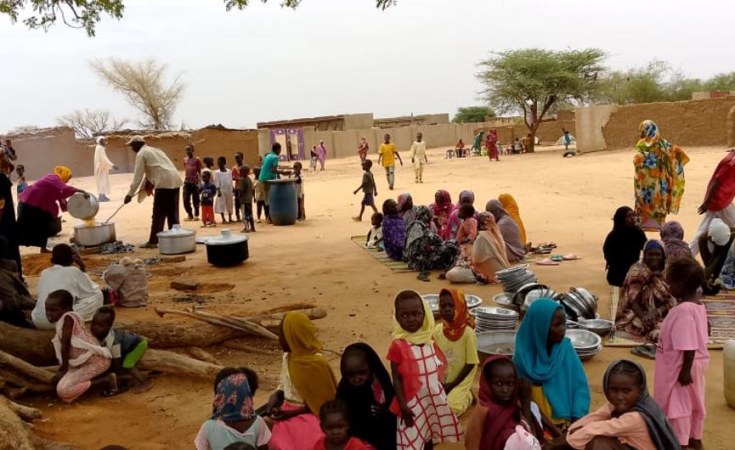Khartoum — The war in Sudan has escalated with the bombing of Port Sudan, the stronghold of the Sudan Armed Forces (SAF) under the command of General Abdel Fattah al-Burhan, by the Rapid Support Forces (RSF).
Today, May 6, RSF drones under the command of Mohamed Hamdan "Hemeti" Dagalo attacked the important Sudanese port city for the third consecutive day. The attacks targeted the civilian area of the airport, a fuel depot, the main military base in the city center, and a hotel.
The first attack took place on Sunday, May 4, when the military part of the airport was targeted.
Although there were no casualties, the attack caused damage to several warehouses and facilities. The May 4 attack came just two days after a similar airstrike against facilities in the city of Kassala.
Port Sudan has become increasingly strategically important since the Sudanese government, diplomatic missions, international organizations, and major companies relocated there after the RSF seized control of large parts of the capital, Khartoum. The attacks on Port Sudan have provoked strong reactions from the Sudanese government, which has indicated that the RSF is supported by key international allies such as Kenya, which recently hosted a summit sponsored by Dagalo to form an alternative government to the one led by General al-Burhan (see Fides, 19/2/2025).
But the United Arab Emirates is particularly in the sights of al-Burhan, who is accused of supplying the RSF with the drones used in the recent attacks. Just yesterday, May 5, the International Court of Justice dismissed the Sudanese government's lawsuit against the United Arab Emirates, accusing it of complicity in the genocide in Darfur (see Fides, 11/4/2025). The court ruled that it lacked jurisdiction over the case because the UAE had reservations regarding Article 9 of the Convention on the Prevention and Punishment of the Crime of Genocide.
Sudanese government officials suspect that the bombs that hit Port Sudan did not come from rebel-held Sudanese territories, but from Bosaso in Somalia's Puntland, where the Emirates have established a key logistical center from which they supply the RSF with weapons and ammunition. According to some sources, the Emirati base in Bosaso (protected by sophisticated Israeli-made radar) was hit on May 3 by drones launched by the Sudanese army. The latest attacks on Port Sudan are therefore in retaliation for the May 3 attack, in which a cargo plane chartered by the Emirates carrying Colombian mercenaries and weapons was allegedly hit at the moment of take-off to Nyala in Darfur (western Sudan), the RSF stronghold.
The Sudanese conflict therefore threatens to spread to neighboring countries and actors outside Africa.


